Healthcare App Development Cost in 2026: A Practical Guide
Singapore’s healthcare app market is expanding rapidly, with market value projected to reach $893.04 million in 2025 and grow to $1.27 billion by 2029, making it one of the fastest-growing segments in the country’s HealthTech ecosystem. This growth is fueled by rising demand for telemedicine, chronic care management, and wellness applications, as healthcare providers and enterprises accelerate digital transformation.
Backed by initiatives such as Smart Nation and platforms like HealthHub, along with advances in AI and predictive analytics, healthcare apps are reshaping how care is delivered and managed. As adoption increases, understanding the true cost of developing an app in Singapore becomes essential for organizations planning scalable, secure, and compliant digital health solutions.
This guide explores the factors that influence healthcare app development costs in Singapore in 2026, with a particular focus on the advantages of partnering with offshore vendors. By leveraging offshore expertise, businesses can access specialized talent, reduce costs, and accelerate time-to-market, all while ensuring high-quality and compliant solutions.
Table of Contents
- How Much Does Healthcare App Development Cost in 2026?
- 7 Key Factors That Determine Healthcare App Development Cost
- Healthcare App Development Cost Breakdown by App Type
- Estimated Timeline & Budget Guide (From MVP to Launch)
- Hidden Costs Most Companies Forget to Calculate
- In-House vs Outsourcing: Which Is More Cost-Effective in 2026?
- 6 Proven Ways to Reduce Healthcare App Development Cost
- Why Work with an Offshore Healthcare App Development Company Like Kaopiz
- Conclusion
- FAQs
How Much Does Healthcare App Development Cost in 2026?
In 2026, the cost of healthcare app development varies widely depending on app complexity, compliance requirements, feature scope, and development model. Unlike standard mobile or web applications, healthcare apps require strict security controls, regulatory compliance, and reliable system integrations, all of which significantly impact overall budget.
As a general benchmark, healthcare app development costs in 2026 typically range from approximately SGD 40,000 to over SGD 500,000.
- Basic healthcare MVP: SGD 40,000 – 70,000, suitable for early-stage validation, with essential features such as user authentication, appointment scheduling, basic data storage, and foundational security controls.
- Mid-level healthcare app: SGD 70,000 – 200,000, includes telemedicine functionality, role-based access, notifications, compliance-ready architecture (PDPA/HIPAA), and limited third-party integrations.
- Enterprise-grade healthcare system: SGD 200,000 – 500,000+, designed for hospitals, insurers, and large health platforms, featuring advanced security, audit logging, multi-system integrations, analytics, and high scalability.
It’s important to note that 30–40% of total development cost is often allocated to compliance, security, and testing rather than visible features. Organizations that plan budgets based only on UI and functionality frequently underestimate total investment. A realistic cost estimate in 2026 should account not only for development, but also for compliance readiness, long-term scalability, and ongoing maintenance to ensure sustainable healthcare operations.
Planning a healthcare app in Singapore? Get a free, no-obligation cost estimate tailored to your specific requirements.
7 Key Factors That Determine Healthcare App Development Cost
Healthcare app development costs are not fixed and can vary significantly from one project to another. Below are the seven key factors that most directly influence the total medical app development cost in 2026.
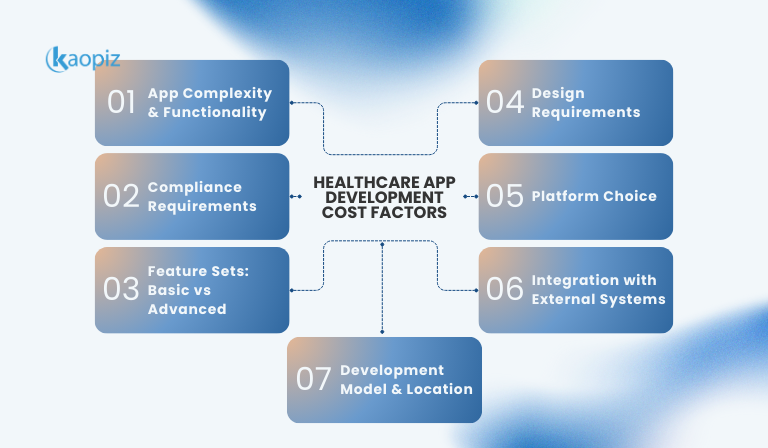
1. App Complexity & Functionality
App complexity is one of the most significant cost drivers in healthcare app development. The more workflows, user roles, and data processing logic an app requires, the higher the development, testing, and maintenance effort.
- MVP-level apps focus on essential features such as user registration, appointment scheduling, basic data capture, and simple dashboards. These are faster to build and ideal for validating an idea with minimal investment.
- Mid-level healthcare apps include more advanced functionality such as teleconsultation, real-time notifications, role-based access (patients, doctors, admins), and basic integrations with external systems.
- Enterprise-grade solutions support complex workflows, large user volumes, advanced analytics, automation, and high availability. They often require modular architecture, extensive testing, and robust security controls.
As complexity increases, so does the need for deeper architecture planning, longer development timelines, and more rigorous quality assurance—making functionality scope a primary determinant of total cost.
2. Compliance Requirements
Compliance is one of the strongest cost drivers in healthcare app development and cannot be treated as an afterthought. Healthcare applications must adhere to strict data protection and interoperability standards such as HIPAA, PDPA (Singapore), GDPR, HL7, and FHIR, depending on the target market and users.
Meeting these regulations requires additional investment in secure system architecture, role-based access control, audit logs, data encryption (at rest and in transit), consent management, and regular security testing. In many cases, external compliance reviews and penetration testing are also required before launch.
As a result, compliance-related work can account for 25–40% of the total development cost, but it is essential to reduce legal risk, protect sensitive health data, and ensure long-term scalability in regulated healthcare environments.
3. Feature Sets: Basic vs Advanced
The scope of features included in a healthcare app has a direct impact on development cost, as each additional function introduces more design, development, testing, and security requirements.
- Basic feature sets typically include user authentication, patient profiles, appointment booking, notifications, and simple data storage. These features are sufficient for MVPs and early-stage products focused on validating core workflows.
- Advanced feature sets go beyond core functionality and may include telemedicine (video consultations), AI-powered diagnostics, wearable and IoT device integration, e-prescriptions, payment processing, and real-time health data analytics.
Advanced features often require third-party integrations, complex backend logic, higher performance standards, and stricter security controls, all of which significantly increase both initial development costs and long-term maintenance expenses.
4. Design Requirements (UX/UI for Healthcare)
UX/UI design in healthcare apps requires a higher level of precision and responsibility compared to standard consumer applications. Interfaces must be clear, intuitive, and error-resistant, as poor design can directly affect patient safety and care outcomes.
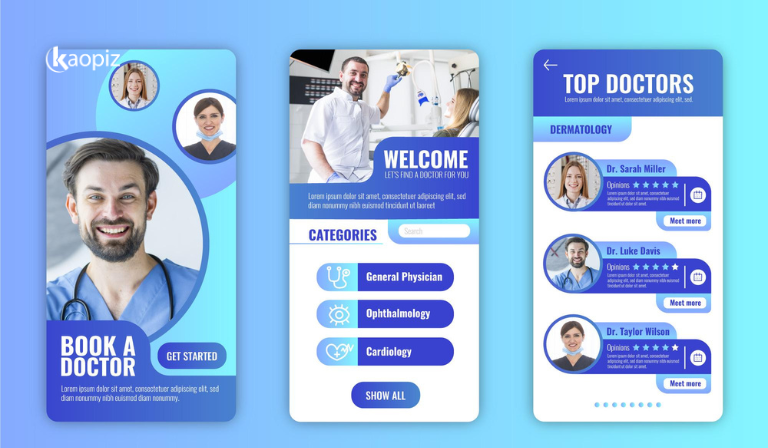
Healthcare apps often need to support accessibility standards, elderly-friendly interfaces, readable typography, and simplified navigation for users with varying levels of digital literacy. Designers must also carefully structure information to reduce cognitive load, ensure accurate data entry, and guide users through critical workflows such as consultations or medication management.
Therefore, healthcare UX/UI typically demands more design iterations, usability testing, and validation, increasing both design effort and overall development cost—especially for patient-facing or clinician-facing applications.
5. Platform Choice (Web/iOS/Android/Multiplatform)
The choice of platform has a direct impact on healthcare app development cost, timeline, and long-term scalability. Each platform comes with different technical requirements, testing needs, and maintenance effort.
- Web applications are typically the most cost-effective option for early-stage products, offering faster development and easier updates, especially for admin portals or internal healthcare systems.
- Native iOS and Android apps deliver better performance and deeper access to device features but require separate development and testing efforts, increasing overall cost.
- Multiplatform development using frameworks like Flutter or React Native allows teams to share a single codebase across platforms, helping reduce initial development costs while still supporting both iOS and Android users.
Choosing the right platform depends on target users, performance needs, and budget constraints, making platform strategy a key factor in controlling healthcare app development costs.
6. Integration with External Systems
Integration with external systems is a major cost factor in mobile app development cost, as it directly affects system complexity, security, and ongoing maintenance. Most healthcare apps do not operate in isolation and must connect with multiple third-party platforms.
Common integrations include EHR/EMR systems, insurance platforms, payment gateways, medical devices, wearables, and IoT sensors. Each integration requires API analysis, data mapping, secure data exchange, and extensive testing to ensure accuracy and reliability.
These integrations often introduce additional compliance, performance, and maintenance requirements. As a result, the more integrations a healthcare app requires, the higher the development cost and long-term operational effort.
7. Development Model & Location
The development model and team location play a critical role in determining healthcare app development costs. Different approaches come with varying levels of investment, flexibility, and speed to market.

- In-house development typically involves high fixed costs, including salaries, compliance training, infrastructure, and long-term resource management. While it offers full control, it is often expensive and difficult to scale quickly.
- App outsourcing allows companies to reduce upfront costs, access experienced healthcare developers, and accelerate development timelines. Cost efficiency varies by region, with development in Vietnam offering significant savings compared to the US or Europe, while maintaining strong technical and compliance standards.
Choosing the right model depends on budget, timeline, and internal capabilities, but for many healthcare organizations in 2026, offshore outsourcing remains the most cost-effective and scalable option.
Healthcare App Development Cost Breakdown by App Type
The mobile app cost in Singapore varies depending on app type and complexity, ranging from basic health tracking apps to advanced AI-driven solutions.
Leveraging offshore development partners, such as Kaopiz, can provide significant cost savings (up to 40-60%) and access to specialized talent while ensuring high-quality app delivery for the Singapore market.
Patient-Facing Apps
Patient-facing apps are designed to improve the patient’s experience by offering digital solutions for managing health and wellness. These apps empower patients to monitor their health, communicate with healthcare providers, and receive personalized care.
Patient-facing healthcare apps typically fall in the SGD 40,000–150,000 range, depending on feature depth and compliance needs. Below are some of the most common types and their costs:
| App Type | Cost Range (SGD) | Features | Development Time |
|---|---|---|---|
| Telemedicine Applications | SGD 40,000 – 150,000 | Virtual consultations, real-time messaging, appointment scheduling, e-prescriptions. | 3–6 months |
| Fitness and Wellness Apps | SGD 40,000 – 100,000 | Activity tracking, workout plans, nutrition tracking, sleep monitoring, wearable integration. | 2–4 months |
| Chronic Disease Management Apps | SGD 50,000 – 150,000 | Symptom tracking, medication reminders, health reports, EHR integration. | 4–6 months |
| Medication Reminder Apps | SGD 40,000 – 70,000 | Medication alerts, dosage tracking, refill reminders, pharmacy integration. | 2–3 months |
| Mental Health Apps | SGD 40,000 – 120,000 | Therapy sessions, mood and stress tracking, self-help resources, relaxation exercises. | 3–6 months |
Provider-Facing Apps
Provider-facing apps help healthcare professionals streamline their operations, improve patient care, and manage internal processes. These apps offer a variety of functionalities, from electronic health record management to internal communication and analytics.
Provider-facing applications generally require a higher investment, ranging from SGD 40,000 to over SGD 500,000. Below are some of the most common types of provider-facing apps and their health app development cost:
| App Type | Cost Range (SGD) | Features | Development Time |
|---|---|---|---|
| EHR / EMR Systems | SGD 100,000 – 500,000+ | Patient data management, medical history tracking, prescriptions, billing. | 6–12 months |
| Appointment Management | SGD 40,000 – 100,000 | Scheduling, reminders, patient communication, EHR integration. | 3–6 months |
| Clinical Analytics | SGD 80,000 – 250,000 | Data visualization, outcome tracking, predictive analytics, patient insights. | 6–9 months |
| Hospital Management Apps | SGD 50,000 – 200,000+ | Resource scheduling, bed management, patient tracking, financial management. | 9–12 months |
| Internal Communication Platforms | SGD 40,000 – 100,000 | Secure messaging, notifications, team collaboration, patient care updates. | 3–6 months |
Specialized Solutions
Specialized solutions in healthcare require advanced technologies and integration with various systems. These apps often involve complex features, such as IoT integration and AI-powered diagnostics, making them more expensive to develop.
Specialized healthcare solutions represent the highest cost category, with budgets typically starting at SGD 50,000 and reaching SGD 500,000+ for advanced AI- or IoT-driven platforms. Below are the estimated costs for some common specialized healthcare apps:
| App Type | Cost Range (SGD) | Features | Development Time |
|---|---|---|---|
| IoT-Enabled Apps for Chronic Care | SGD 100,000 – 400,000+ | Real-time data tracking, alerts for abnormal readings, integration with EHR systems, patient monitoring. | 6–12 months |
| Women’s Health Apps | SGD 50,000 – 150,000 | Menstrual cycle tracking, fertility monitoring, pregnancy updates, health tips. | 3–6 months |
| Pharmacy Delivery & Healthcare eCommerce | SGD 80,000 – 200,000 | Online pharmacy orders, payment processing, prescription uploads, delivery tracking. | 4–8 months |
| Remote Monitoring Apps | SGD 50,000 – 150,000+ | Vital sign tracking, alerts for abnormal health data, integration with EHR, real-time monitoring. | 6–12 months |
| AI-Driven Diagnostic Support Apps | SGD 150,000 – 500,000+ | AI-powered diagnostics, predictive analysis, personalized treatment plans, machine learning models. | 9–12+ months |
Planning an app in Singapore with a health tech development partner? Get a free, no-obligation cost estimate from Kaopiz within 30 minutes. Share your requirements, and our healthcare specialists will provide a clear scope, realistic budget range, and development timeline—fully aligned with PDPA and international compliance standards.
Estimated Timeline & Budget Guide (From MVP to Launch)
The timeline and budget for healthcare app development depend largely on feature scope, compliance requirements, and system complexity. Below is a practical guide to help you understand what to expect at each development stage—from initial MVP to full-scale enterprise systems.
MVP (Essential Features Only)
- Estimated Cost: SGD 40,000 – 70,000
- Timeline: 3–4 months
- Scope: Core features only, such as user authentication, patient or provider profiles, appointment scheduling, basic data storage, and foundational security controls. MVPs are ideal for market validation, pilot programs, or early user feedback before committing to larger investments.
Mid-level Healthcare App
- Estimated Cost: SGD 70,000 – 200,000
- Timeline: 4–6 months
- Scope: Includes telemedicine capabilities, role-based access (patients, doctors, admins), notifications, compliance-ready architecture (PDPA/HIPAA), and limited third-party integrations such as payment gateways or EHR-lite systems. This level suits scaling startups and private healthcare providers.
Enterprise-grade Healthcare System
- Estimated Cost: SGD 200,000 – 500,000+
- Timeline: 6–8+ months
- Scope: Built for hospitals, insurers, and large healthcare networks, featuring advanced security, audit logging, high availability, complex integrations (EHR, insurance platforms, IoT devices), analytics, and scalable architecture. These systems are designed for long-term growth, regulatory compliance, and high user volumes.
Hidden Costs Most Companies Forget to Calculate
Many healthcare app projects exceed budget not because of poor development, but due to hidden costs that are overlooked during initial planning. In regulated healthcare environments, these expenses can significantly impact total cost of ownership if they are not accounted for from the start.
Common hidden costs include ongoing maintenance and feature updates, which typically account for 15–25% of the initial development cost annually. As user numbers grow, cloud infrastructure and scaling costs also increase—especially for apps handling real-time data, video consultations, or large patient datasets. Additionally, compliance renewals, security audits, and penetration testing are recurring requirements, not one-time expenses.
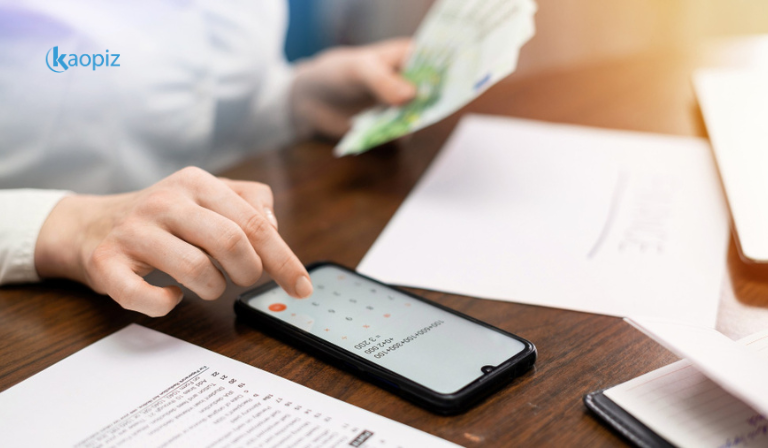
Other often-missed costs involve integration upgrades when third-party systems change APIs, customer support and operational staffing, and data migration from legacy systems. Without proper planning, these expenses can quickly compound. In fact, up to 80% of healthcare organizations experience budget overruns because hidden costs were not included in early estimates, making long-term cost planning just as critical as initial development budgeting.
In-House vs Outsourcing: Which Is More Cost-Effective in 2026?
Choosing between an in-house team and outsourcing is a critical decision that directly affects cost, speed, scalability, and long-term risk—especially in healthcare, where compliance and specialized expertise are essential.
In-house Team Costs (Full Breakdown)
Building an in-house healthcare development team involves high fixed and long-term costs, including:
- Salaries: Competitive pay for developers, QA engineers, DevOps, security specialists, and compliance experts
- Training: Ongoing upskilling in healthcare regulations (PDPA, HIPAA, HL7, FHIR)
- Compliance expertise: Dedicated resources for security reviews, audits, and regulatory alignment
- Infrastructure: Hardware, software licenses, cloud environments, security tools, and internal support systems
Total cost is very high, with limited flexibility and slow scalability, making it difficult to expand or pivot quickly as requirements evolve.
Outsourcing Costs
Outsourcing healthcare app development offers a more cost-effective and flexible alternative, particularly when working with experienced offshore partners.
Key benefits include:
- Lower upfront investment with predictable monthly or project-based pricing
- Faster team formation, reducing time-to-market
- Access to healthcare-specialized engineers with proven compliance experience
- Lower operational burden, as infrastructure, staffing, and training are managed by the vendor
For many organizations, outsourcing can reduce total development costs by 40–60% without compromising quality or security.
Verdict: When to Choose Which Model?
- Choose in-house if you are a large healthcare enterprise with long-term internal product ownership and sufficient budget.
- Choose outsourcing if you need faster delivery, cost efficiency, scalable resources, and access to specialized healthcare expertise—especially for MVPs, scaling products, or compliance-heavy systems.
In 2026, the healthcare app trend among organizations is to choose outsourcing as the more cost-effective and scalable option, particularly when partnering with a trusted offshore provider.
6 Proven Ways to Reduce Healthcare App Development Cost
Healthcare app development does not have to be prohibitively expensive if costs are planned strategically from the outset. Below are six proven approaches that healthcare organizations use to control budgets while still delivering secure, high-quality digital health solutions.
- Start with an MVP: Focus on essential features only to validate the product concept and user demand before investing in advanced functionality.
- Prioritize Must-Have Features: Clearly distinguish between core requirements and nice-to-have features to avoid scope creep and unnecessary development effort.
- Choose a Scalable Architecture Early: Designing a modular, scalable architecture from the start prevents costly rework when the app needs to grow or integrate with additional systems.
- Use Cross-Platform Development: Frameworks like Flutter or React Native reduce development time and cost by enabling a shared codebase across iOS and Android.
- Outsource to Vietnam: Partnering with experienced Vietnamese healthcare development teams can reduce total costs by 40–60% while maintaining strong compliance and engineering standards.
- Avoid Unnecessary Integrations: Integrate only what is essential for launch, and phase in additional systems after validating real business value.
By applying these strategies, healthcare companies can significantly reduce development costs without compromising security, compliance, or long-term scalability.
Why Work with an Offshore Healthcare App Development Company Like Kaopiz
Partnering with a trusted healthcare app development company in Singapore, like Kaopiz, offers numerous benefits, particularly in terms of cost-efficiency, access to skilled talent, and the ability to leverage cutting-edge technologies.
With a team of 700+ professionals, 11+ years of experience, and a strong track record of delivering high-quality healthcare apps, Kaopiz provides excellent healthcare software development services and ensures that businesses can develop innovative solutions while minimizing costs and maximizing value.
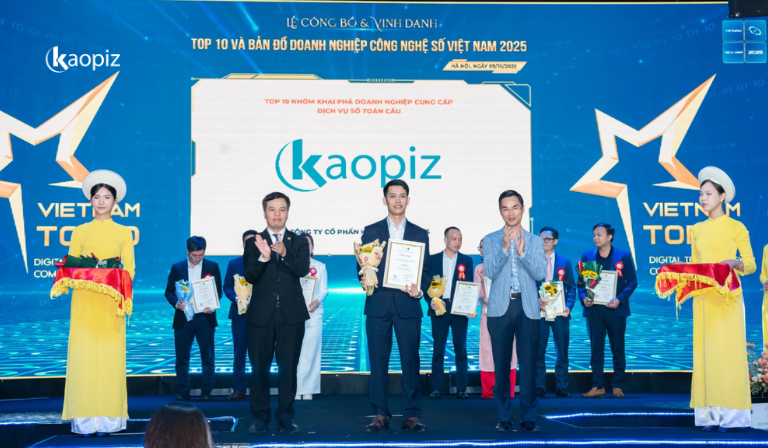
What sets us apart in mobile app development:
- Cost Efficiency: Save on mobile app development costs in Singapore by working with our offshore team in Vietnam, where labor costs are significantly lower without compromising on quality.
- Specialized Talent: Leverage our team’s expertise in AI, EHR systems, and wearable technology to develop innovative healthcare solutions. Kaopiz brings in-depth knowledge of cutting-edge technologies and healthcare regulations, ensuring your app is both advanced and compliant.
- Faster Time-to-Market: Scale development efforts with our 24/7 work cycles, allowing your healthcare app to be released more quickly. With our offshore team, we can accelerate the development process and get your app into the market faster to meet growing demand.
- Regulatory Compliance: Ensure your app complies with PDPA (Singapore) and HIPAA (for global clients), safeguarding patient data and meeting the highest standards in healthcare security.
- Ongoing Support: Kaopiz offers healthcare mobile app development services with long-term support to ensure your app performs optimally and evolves with your business needs.
Ready to bring your healthcare app to life? Partner with Kaopiz for cost-effective, high-quality offshore development and get your app to market faster. Contact us today to discuss your project and get a tailored solution for your healthcare business.
Conclusion
Healthcare app development cost in 2026 is shaped by app complexity, compliance requirements, system integrations, and the chosen development model. From simple patient-facing MVPs to enterprise-grade healthcare platforms, realistic budgeting requires looking beyond features to include security, scalability, and long-term operational costs.
By starting with a clear scope, planning for hidden expenses, and choosing the right delivery model, healthcare organizations can significantly reduce risk and control costs. Partnering with experienced healthtech development firms like Kaopiz enables Singapore businesses to build secure, compliant, and scalable healthcare apps while achieving substantial cost savings and faster time to market.
FAQs
- Which Features Are MANDATORY (Must-have) to Keep Initial Costs Low?
-
At minimum, a healthcare app should include secure user authentication, role-based access, core workflows (such as booking or data entry), encrypted data storage, and basic compliance controls. Starting with only essential features helps validate the product while minimizing upfront development costs. - Should I Build a Web App or a Mobile App to Optimize the Initial Budget?
-
A web app or cross-platform solution is usually more cost-effective for an initial launch, as it requires less development and maintenance effort.
Native mobile apps are better suited once user demand, performance needs, and long-term product goals are clearly defined. - Is It Possible to Update the App After Launch, and What Are the Associated Costs?
-
Yes. Healthcare apps are typically updated in phases to add features, improve performance, or meet new compliance requirements. Ongoing updates usually cost 15–25% of the initial development budget per year, depending on scope and scale. - What’s the Cost of a Basic Healthcare MVP?
-
A basic healthcare MVP generally costs SGD 40,000 – 70,000, covering essential functionality, foundational security, and compliance-ready architecture. - How Much Does Maintenance Cost Annually?
-
Annual maintenance typically ranges from 15–25% of the original development cost, including bug fixes, security updates, compliance renewals, and infrastructure support.
One Reply to “Healthcare App Development Cost in 2026: A Practical Guide”
Leave a Comment
Trending Post
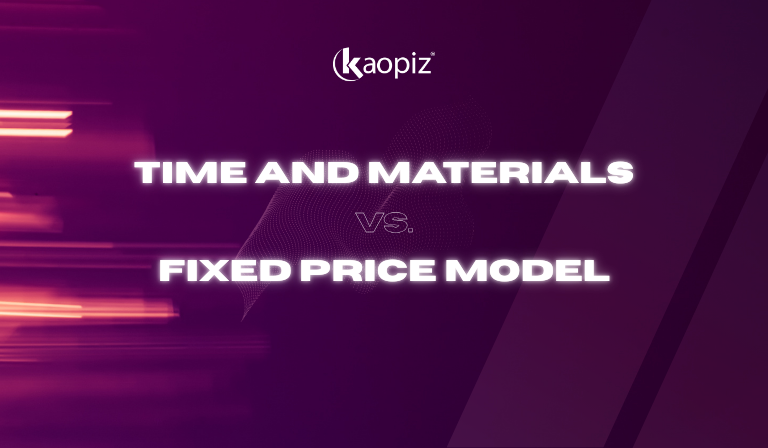
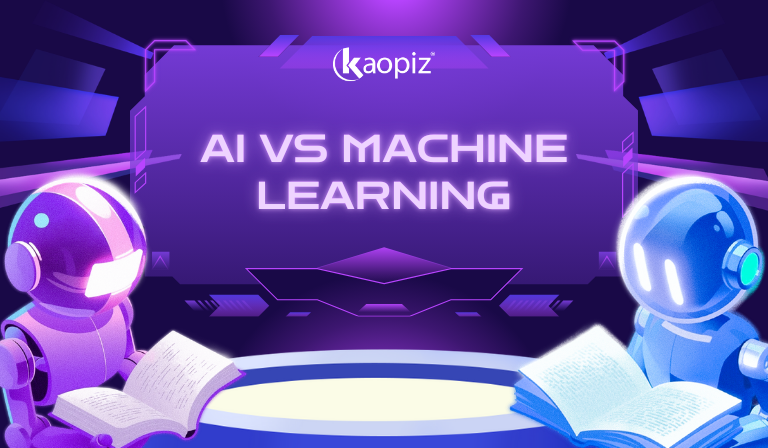
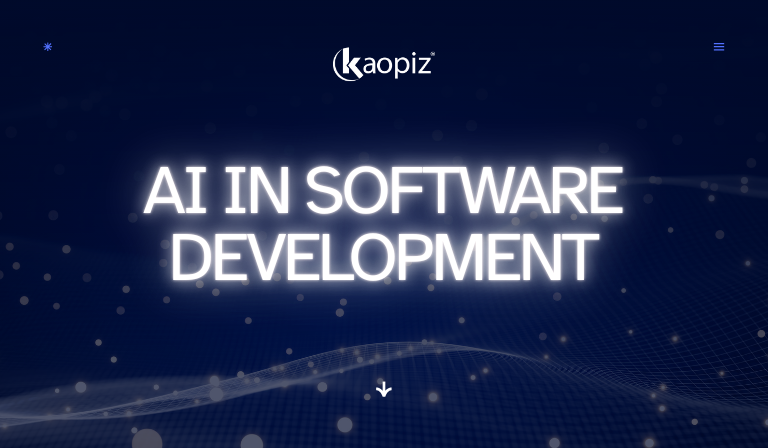
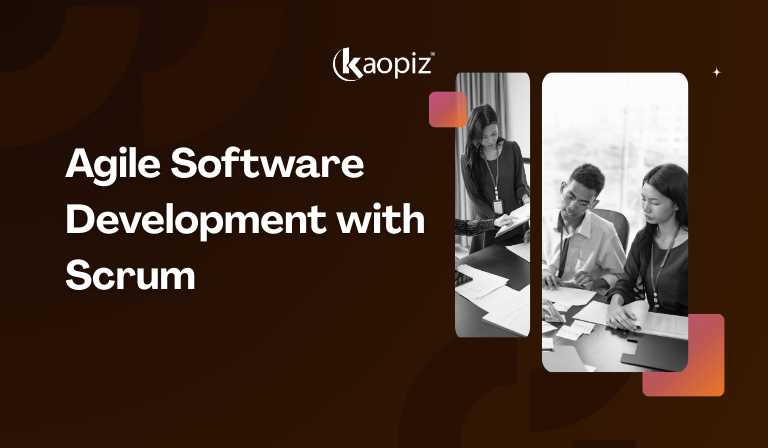

















Pingback:10 Healthcare Software Development Trends in Singapore 2025